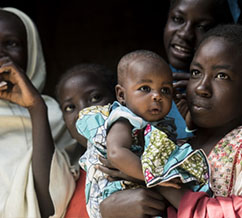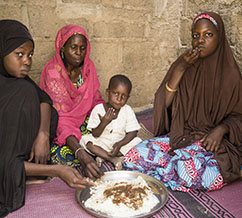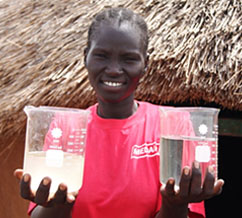Today we are joined by Mr. Robert Jenkins, Acting [corrected title] Assistant Administrator for the U.S. Agency for International Development's Bureau for Democracy, Conflict, and Humanitarian Assistance. Mr. Jenkins will discuss U.S. humanitarian aid to fight famine in Nigeria, South Sudan, Somalia, and Yemen, and in particular, the recent announcement of an additional 639 million dollars in assistance for this effort. Mr. Jenkins is speaking to us from Washington, D.C. We will begin with remarks from Mr. Jenkins, and then we will open it up to your questions.
Dire food insecurity persists despite UN removal of Famine designation in Unity. Approximately 6 million people projected to be severely food insecure in July. US government (USG) announces $199 million in additional humanitarian assistance for the South Sudan response.
Famine Early Warning System (FEWS) NET expects persistent food security crisis through early 2018. USAID/OFDA staff assess health, nutrition, and water, sanitation, and hygiene (WASH) needs in northern Kenya. US Government (USG) announces nearly $126 million in new humanitarian assistance for Somalia and Somali refugees in the Horn of Africa region.
President Trump announces $122 million in additional humanitarian funding to support conflict-affected Nigerians. Government of Nigeria (GoN) and Government of the Republic of Cameroon (GRC) authorities facilitate transport of approximately 900 displaced Nigerians from Cameroon to Nigeria in late June. Armed actors attack civilians across the Lake Chad Basin, including Nigeria’s city of Maiduguri and Cameroon’s Mayo-Sava. Department
UN declares Yemen the largest cholera outbreak globally, with more than 297,400 new suspected cases and 1,706 related deaths as of July 7. The population in need of humanitarian assistance increased by nearly 2 million people between November 2016 and April 2017. USG announces nearly $192 million in new humanitarian funding to support critical relief efforts in Yemen.











Comment
Make a general inquiry or suggest an improvement.